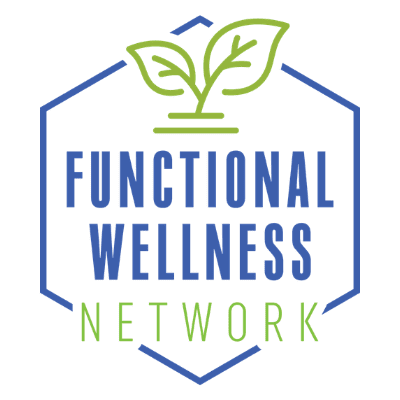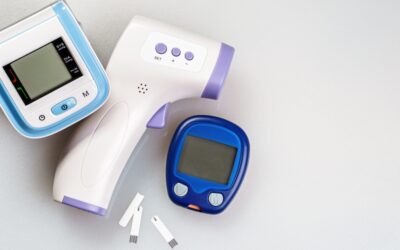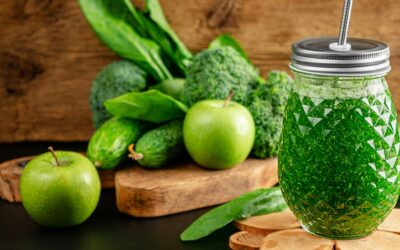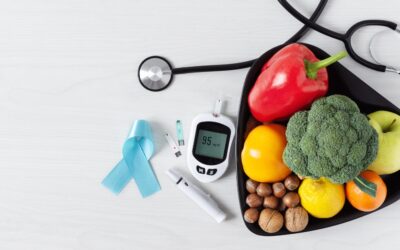By: Brittany McCoy, PharmD, MBA, BS
Article Summary:
- Collagen is naturally produced, but can also be obtained via dietary sources like food and supplementation.
- Collagen naturally decreases with age.
- Aging is inevitable and lifestyle factors like smoking and excessive alcohol intake can speed up the process.
- Although limited, there are clinically validated sources of collagen to support statements of collagen supporting hair, nail, skin, bone, joint, muscle and ligament health even though not evaluated by the FDA.
- When properly sourced and substantiated, collagen can be easy, safe, and effective to use.
- Collagen is a great addition to a functional approach with the appropriate guidance and due diligence.
What can you expect to learn in this article:
- Introduction
- What is collagen?
- What are the major types of collagen?
- What are collagen peptides?
- Collagen and its uses and benefits
- Dietary sources of collagen
- Supplementation with collagen
- What causes a loss of collagen?
- What are the different delivery systems of collagen?
- What are any other items to consider?
- Clinical Study highlights
- The S3 Biophotonic Scanner: A Functional Approach to Care:
- References
Introduction:
Beauty is not limited to any particular age, race, sex, body type, or any other demographic and this is one of the reasons that make collagen “hot on the market” right now. With that being said, no two diet sources, supplements, or commercially sold products are created equal among their respective groups. Not to mention that the benefits of collagen go far beyond just the skin. I mean everyone can benefit from collagen, not just women in wellness. The purpose of this article is to provide some insight on the most abundant protein and widely sold product, collagen from a functional medicine approach.

What is collagen?
Collagen is an important structural protein found in animals. It is also found in plant and animal foods. A structural protein makes up the strength, support, and structural components of cells and tissues. Collagen accounts for 30% of the body’s total protein, 70% of the protein in skin, 80% of the protein in bone, and lines our arteries, organs, and intestines.
Collagen is a three stranded helix and is composed of the amino acids glycine, proline, and hydroxyproline. Your body also needs the correct amount of vitamin C, vitamin D, zinc, copper and manganese to help make this structure.
Collagen is the primary building block of the connective tissues in your body’s skin, muscles, bones, tendons and ligaments. It’s also found in your organs, blood vessels and intestinal lining.
What are the major types of collagen?
Differing by how they are assembled, the 29 types of collagen are categorized by five main types:
Type I: It makes up 90% of your body’s collagen providing structure to your skin, bones, tendons and ligaments. By being densely packed into these areas it acts as a supportive framework.
Type II: It is found in elastic cartilage and provides us with joint support.
Type III: It is found in our muscles, arteries, and organs.
Type IV: It is found in the layers of our skin.
Type V: It is found in the cornea of our eyes, layers of our skin, hair, and tissue of the placenta.
What are collagen peptides?
While many common collagens provide the building blocks that our skin needs, collagen peptides go a step further—stimulating our skin to boost both collagen and elastin production. Collagen peptides are also more digestible, better absorbed, and better distributed throughout your body and standard collagen. They are essentially smaller fragments of collagen.
Collagen and its uses and benefits:
Our bodies naturally produce collagen and we also consume it in dietary sources. There are many topical and oral collagen products on the market to aid and support the signs and symptoms of aging like reductions in skin texture, radiance, firmness, elasticity and hydration, joint issues like tendon, ligament and tendonitis, joint pain and stiffness, increasing fat loss and muscle gain and strength, gut dysfunctions, and bone mineral density and bone growth.
Collagen is essential for maintaining optimal health and wellbeing throughout our lifetime. Not only does it help to repair tissues, but also regulates the body’s immune response, growth of cells as well as their turnover and migration. Collagen even helps our blood to clot! This key component affects a variety of areas in our bodies such as hair, skin, joints, and gut lining all susceptible to intrinsic or extrinsic influences – making keeping up with your collagen levels paramount when striving towards aging gracefully.
Possible signs for the need for collagen: wrinkled skin, sagging skin, rough texture skin, brittle hair and nails, intestinal issues, bone fractures, joint pain, and leaky gut.
What are some dietary sources of collagen?
Once you ingest collagen, it is broken down into amino acids further proving that eating collagen specifically is not the only way to increase collagen production in the body.
There are foods that contain collagen and foods that boost collagen production. For the latter in other words, foods that contain certain amino acids, vitamins, and minerals.
AGE’s. Bone broth is a great example of a food containing collagen.

Supplementation with collagen:
Although the US FDA doesn’t regulate dietary supplements like collagen or require those products to be safe and efficacious before being marketed, there are some quality products exceeding even the FDA’s standards while maintaining quality, maintenance, and good manufacturing processes, obtaining far stricter certifications and credentials, and even making it into the Prescriber’s Digital Reference (PDR).
A few examples of important supportive nutrients are:
- Vitamin C is necessary in the collagen synthesis.
- Lutein is a carotenoid that improves skin radiance and helps to protect against oxidative stressors, like blue light.
- Phytoceramides help keep our skin’ s moisture barrier healthy and hydrated.
What causes the loss of collagen?
With aging, the natural production of collagen decreases producing about 1.5% less collagen every year. Its production can be inhibited by oxidative stressors such as excessive sunlight, diets high in sugar, refined carbs, and ultra processed foods, and certain lifestyle factors like smoking and excessive alcohol intake for example. By the age of 50 we lose about 25% of our skin’s collagen and by 75, about 50%.
Damage from diets rich in sugar, refined carbs, and ultra processed foods forms end products of glycation, called advanced glycation end products (AGEs) to proteins (and fats). This causes excess damage to the collagen in the form of brittleness, dryness, and weakness.
Nicotine constricts our blood vessels preventing important transportation of nutrients and waste. Smoking also reduces collagen production.
Excessive sunlight also decreases collagen production and weakens collagen in the cells and tissues.
What are the different delivery systems of collagen?
Oral collagen can be supplemented in the form of pills, powders, and liquids. There are also topical collagen products in the forms of skin creams, serums, periodontics, and prosthetics.
Evaluating the bioavailability and absorption, if available, in the literature and clinical studies are key to making recommendations.
What are any other items to consider?
It is not necessary to ingest collagen to support your collagen levels. Diet and supplementation of high quality protein, vitamins C & D, Calcium, and zinc, for example, are key. It is recommended to intake 0.36g of protein per lb (0.8g per kg) of your body’s weight.
Minimizing smoking, excessive drinking, processed foods while maximizing exercise, high quality protein and plant foods are ideal ways to increase longevity and age well.
Clinical Study Highlights:
Study Reference #2: In a third- party, prospective, double-blind, randomized, controlled study with 60 healthy, nonsmoking women and men between 40-60 years of age. 40 subjects were randomized to the Beauty Focus Collagen+ group, and 20 subjects were randomized to the control group. The Collagen+ group was given a unique product containing bioactive collagen peptides (2.5 g), lutein (5 mg), and a wheat lipid extract (70 mg).
A BioPhotonic Scanner was also used to non-invasively measure carotenoid levels in the skin, as an indicator of antioxidant protection. Each subject had their skin graded by a dermatologist at days baseline, 30, 60, and 120 of supplementation and carotenoid level was also assessed at days baseline, 30, and 120. Statistical analysis and ordinal regression was used in grading.
Results: The study showed an 18% improvement in overall appearance, a 24% improvement in texture, and a 33% improvement in skin radiance. The average Skin carotenoid Score (SCS) increased by 10,750 after 120 days of taking Collagen+. All results being statistically significant.
Study Reference #3: In this double-blind, placebo-controlled study, the effectiveness of the specific bioactive collagen peptide (BCP) VERISOL® on eye wrinkle formation and stimulation of procollagen I, elastin and fibrillin biosynthesis in the skin.114 women aged 45-65 years were randomized to receive 2.5 g of BCP or placebo, once daily for 8 weeks, with 57 subjects being allocated to each treatment group. Skin wrinkles were objectively measured in all subjects, before starting the treatment, after 4 and 8 weeks as well as 4 weeks after the last intake (4-week regression phase).
Results: The ingestion of the specific BCP used in this study promoted a statistically significant reduction of eye wrinkle volume (p < 0.05) in comparison to the placebo group after 4 and 8 weeks (20%) of intake. After 8 weeks of intake a statistically significantly higher content of procollagen type I (65%) and elastin (18%) in the BCP-treated volunteers compared to the placebo-treated patients was detected.
Study Reference #4: In this double-blind, placebo-controlled trial, 69 women aged 35-55 years were randomized to receive 2.5g or 5.0g of CH or placebo once daily for 8 weeks, with 23 subjects being allocated to each treatment group. Skin elasticity, skin moisture, transepidermal water loss and skin roughness were objectively measured before the first oral product application and after 4 and 8 weeks of regular intake.
Results: skin elasticity in both CH dosage groups showed a statistically significant improvement in comparison to placebo. After 4 weeks of follow-up treatment, a statistically significantly higher skin elasticity level was determined in elderly women.
Study References #5-7: Feel free to take a glance at your own leisure.

The S3 Biophotonic Scanner: A Functional Approach to Care:
Based on Resonant Raman Spectroscopy, the Scanner is a cutting-edge device that non-invasively measures carotenoid levels in living tissue in 30 seconds using optical technology. It provides an immediate indication of a person’s skin carotenoid levels and antioxidant status.
A SCS certification means that Pharmanex® scientists are confident that their products will raise your skin carotenoid score, or SCS, as measured by the S3 BioPhotonic Scanner. Carotenoids are a class of important antioxidants that can come from a variety of sources, including fruits, vegetables, and your supplements. If a product is SCS-certified, then using it will increase the client’s scanner score over time.
Everyday we are exposed to oxidative stress and inflammation, but when those levels exceed normal levels then we have issues that impact our health. Antioxidants help to neutralize that free radical exposure providing protection to our cells and tissues. Carotenoids are the largest family of antioxidants and provide wonders to our bodies.
Utilizing this knowledge, our health professionals influence the impacts of health with their clients. Reach out to our team to learn more about this functional medicine approach and how we can serve you and your community!
References:
- Beauty Focus(™) Collagen + Double-Blind Placebo-Controlled Clinical Study. https://www.nuskin.com/content/dam/office/n_america/US/en/pharmanex_products/en-collagen-plus-clinical-bulletin.pdf. Accessed 01/2023.
- Hester S, Wood S, Gray R, et al. Collagen Supplement Improves Skin Attributes in Healthy Adults, Current Developments in Nutrition, 2021;5(2): 321 https://doi.org/10.1093/cdn/nzab037_031.
- Proksch E, Schunck M, Zague V, Segger D, Degwert J, Oesser S. Oral intake of specific bioactive collagen peptides reduces skin wrinkles and increases dermal matrix synthesis. Skin Pharmacol Physiol. 2014;27(3): 113–119.
- Proksch E, Segger D, Degwert J, Schunck M, Zague V, Oesser S. Oral supplementation of specific collagen peptides has beneficial effects on human skin physiology: a double-blind, placebo-controlled study. Skin Pharmacol Physiol. 2014;27(1):47–55.
- Hexsel D, Zague V, Schunck M, Siega C, Camozzato FO, Oesser S. Oral supplementation with specific bioactive collagen peptides improves nail growth and reduces symptoms of brittle nails. J Cosmet Dermatol. 2017;16(4):520–526.
- Palombo, P., G. Fabrizi, V. Ruocco, E. Ruocco, J. Fluhr, R. Roberts and P. Morganti (2007). Beneficial long-term effects of combined oral/topical antioxidant treatment with the carotenoids lutein and zeaxanthin on human skin: a double-blind, placebo-controlled study. Skin Pharmacol Physiol 20(4): 199–210.
- Juturu, V., J. P. Bowman and J. Deshpande (2016). Overall skin tone and skin-lightening-improving effects with oral supplementation of lutein and zeaxanthin isomers: a double-blind, placebo-controlled clinical trial. Clin Cosmet Investig Dermatol 9: 325–332. 6.Guillou, S., S. Ghabri, C. Jannot, E. Gaillard, I. Lamour and S. Boisnic (2011). The moisturizing effect of a wheat extract food supplement on women’s skin: a randomized, double-blind placebo-controlled trial. Int J Cosmet Sci 33(2): 138–143.




